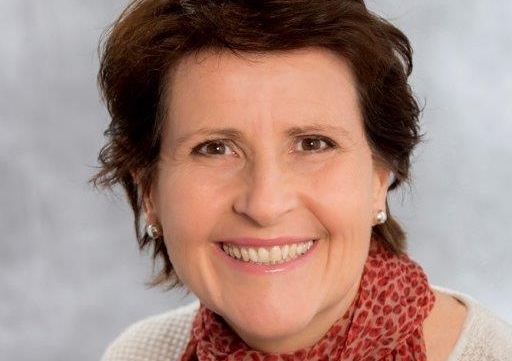UNSW Medicine alumna appointed CEO of Medicines Australia
UNSW Medicine alumna Elizabeth de Somer has been appointed CEO of Medicines Australia, the country’s peak body representing the innovative medicine industry.
UNSW Medicine alumna Elizabeth de Somer has been appointed CEO of Medicines Australia, the country’s peak body representing the innovative medicine industry.

Ivy Shih
UNSW Media and Content
(02) 9385 9555 , +61 466634161
i.shih@unsw.edu.au
UNSW Medicine alumna Elizabeth de Somer has been appointed Chief Executive Officer of Medicines Australia, the country’s peak body representing the innovative medicine industry. Ms de Somer is the first woman to take on the role.
Ms de Somer is no stranger to pharmaceutical innovations. She has worked at the frontlines of the medical field for decades, as an intensive care nurse, clinical trials coordinator and Clinical Research Associate. Witnessing how pharmaceutical products progress from the laboratory benches to impacting patient treatment was the clincher that made Elizabeth de Somer embark on the field of pharmaceutical innovations, and it’s what motivated her to complete UNSW Medicine’s Master of Pharmaceutical Medicine program.
“Being involved at the forefront of medicines innovation was exciting,” de Somer says.
“The medicines that I was involved in researching became available to patients and changed the course of treatments for some diseases. When I thought about doing further study, the Master of Pharmaceutical Medicine at UNSW was an obvious choice for me.”
Ms de Somer went on to complete the program and recalls her time at UNSW fondly, remembering how everyone was invested in the success of students.
“I absolutely loved it. The lecturers who taught my courses were inspiring. I particularly remember Ken Williams and Ric Day getting me through the Chemistry module, and there are many others who were amazing, too,” she says.
“I loved learning everything there was to know, from legislation and regulation to physiology and biochemistry.”
Following the Masters program, Ms de Somer moved away from clinical research into regulatory affairs and manufacturing, before being drawn into the world of medicines policy, which would eventually lead her to Medicines Australia.
“Some of it was design and some was serendipitous, like many great discoveries!” she says.
Ms de Somer says the Master of Pharmaceutical Medicine degree provided the in-depth insight into the industry and opened up a wider range of options for her career.
“From being a person with a clinical research background, I learned to appreciate the whole system from discovery, to development, regulation and funding of medicines.
“Once I started at Medicines Australia I was really able to draw on the skills from the UNSW program to see where all the pieces fit in the broader setting of medicines being available to Australian patients. It was an eye opener to the wider government policy settings that enable Australian patients to have access to the latest innovations through our publicly funded health care system, and it showed me where Australia fits in the context of the global industry. Again, being part of that influence was exciting.”
Ms de Somer maintains a close connection with her alma mater, keeping in touch with fellow UNSW Medicine graduates – many of them still work in the pharmaceutical industry. She is also a member of the Advisory board for the Master of Pharmaceutical Medicine that constantly reviews the program to ensure the degree is up to date with the fast-paced environment of pharmaceutical innovation. Members include leaders in the Australian Department of Health and pharmaceutical companies.
Ms de Somer adds that the Advisory Board is dedicated to ensuring the talent pool for industry and government remains rich and relevant, and maintains the degree’s high success rate of placing graduates in industry-based positions.
“The degree fosters collaboration across industry, government and academia. It is internationally recognised, contributing to the global perspective and fostering networking opportunities for students both domestic and international,” she says.
Dr Orin Chisholm, program director and Senior Lecturer in Pharmaceutical Medicine in the UNSW School of Medical Sciences, says: “We warmly congratulate Elizabeth on her appointment to Medicines Australia. It is a pleasure to work with her as a member of the Advisory Board for the Master of Pharmaceutical Medicine program and to incorporate her insights and contributions in the continued development of the program.
“One outstanding aspect of this program is the willingness of graduates, such as Elizabeth, to maintain their associations with it and to make valued contributions to the program following their graduation. It is inspiring to work with their enthusiasm to continue to provide world-class education in the important area of medicines development. I look forward to continuing our association with Elizabeth to ensure Australia develops the capacity and skilled workforce needed to meet future challenges in the exciting and growing field of medicines development.”
Medicines Australia plays a crucial role in ensuring an ethical and productive environment for the discovery-driven pharmaceutical industry in Australia. The organisation advises the Australian community and government on developing health and industry policies. It also administers the Medicines Australia Code of Conduct, which sets the standard for the ethical marketing and promotion of prescription medicines.
Ms de Somer plans to uphold the high standard of Medicines Australia’s services to the Australian government and to the wider community.
“Medicines Australia is the peak body representing the innovative pharmaceutical industry. It is a member based organisation, so importantly, we have to represent and provide value to our members,” she says.
“Additionally, we need to demonstrate the broader value that the medicines they develop provide to the community and to the government, both in healthcare outcomes, healthcare efficiencies and broader economic and social value.”